For those not familiar with the ketogenic diet and interested in keto backpacking: it is a medium to high fat, medium protein and low carb way of eating that has many benefits including weight loss and sustained energy and is specifically well suited for endurance sports like backpacking. Keto backpacking means sustained and increased energy, no carb bonks and lighter food carries (more calories per ounce in high fat foods).
While I’ve had great success on day hikes and in general with keto, I’ve never done a multiday trip and wanted to wait until I’m fat adapted (happens over 4 to 8 weeks of beginning keto), hence this trip. To date, I’ve done long day hikes fasted from the day previous that would usually require me to eat before, during and after … I mean like, race to a restaurant as soon as I’m done type of stuff. Not with keto. I’ve also noticed a more steady stream of energy and less exhaustion as has been reported by others on low carb and high fat diets.
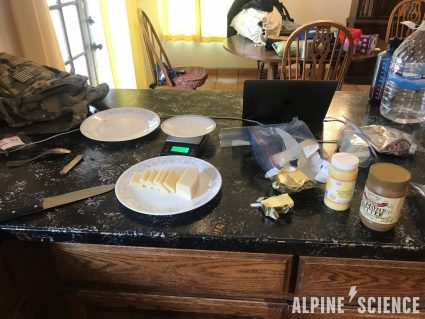
Keto Backpacking Info is Hard to Find!
Despite well known studies and the emerging popularity of high fat / low carb diets in mainstream sports, I’ve only read a few accounts of thru-hiking / backpacking keto and there’s very few first hand reports online, so while the basics of keto athletic pursuits shouldn’t be that much different in backpacking, it’s a bit of work getting info and strategies for food prep and meal plans.
Route and Macros Beta
Route: 3 days | 50 miles | Highline Trail #31 outside of Payson, AZ
Data: I’ve been keto for 10 weeks, 165 lbs, 24.5% body fat via DEXA scan, 5’10”, 43.
Non-backpacking Macros: 101 g fat, 102 g protein, <25 carb.
Base Pack Weight: All gear not including consumables (food, fuel, water) (includes thru hiking addons and winter gear) – 12.4 lbs. View Gear List
Total Pack Weight: 26.5 lbs
Pre-Trip: Thoughts and Notes
Food is coming in at 6.5 lbs but I’m bringing so much extra stuff I have no idea where this will shake out to when I have a better grasp of what I need to bring. I average 2 lbs a day to 2.5 lbs on a thru hike normally, so should move to 1.5 lbs ish from there easily once I have things worked out. Weight isn’t the real motivation though, energy / performance is and so far on small test hikes my expectations have been blown away. Wake up and spend the day climbing mountains fasted from the day prior? I could have never done that previously.
Food: Bringing meat / cheese / butter fat bombs, nut butter (50% almond butter and 50% butter), protein powder, salmon jerky, cream cheese, almonds and macadamias, butter, coffee, coconut oil for butter coffee and one dark chocolate bar.
Daily Supplementation of Electrolytes (critical on Keto): Potassium and sodium in a drink mix aka ketorade and magnesium glycinate in pill form. Am erring heavily on the side of caution by bringing a lot more than I think I will need. These are important on a keto diet as lethargy and headaches can occur without supplementation.
Ketorade Recipe: 1 teaspoon of salt (sodium) + 1 teaspoon of No Salt (potassium) + teaspoon of water flavoring in 1 liter of water. I drink at least once liter of this daily off trail, two daily while backpacking.
What Could Go Wrong?
Since this is new territory for me, my major concerns are how my body will react day after day. Will I burn out on the food, lose my appetite, have massive diarrhea, feel like total shit, bonk because no appetite? How can this go really wrong when I’m days away from civilization?
Another concern has been food prep on trail and not ending up with butter / grease everywhere as it spreads quickly and I have a beard. I’m also approaching food prep from the standpoint of a thru hiker where you buy food and have to prep in a parking lot and don’t have a kitchen to work in, so no luxury meals or recipes.
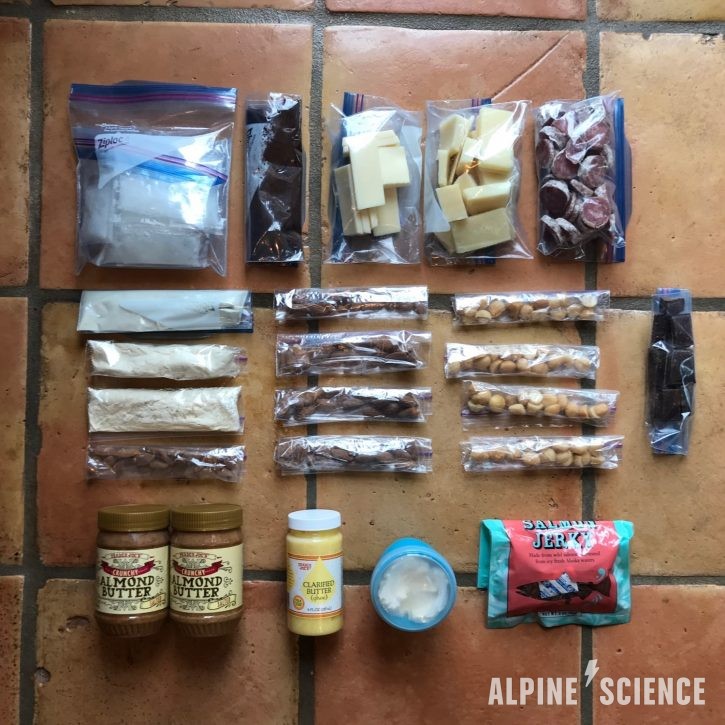
Post-Trip: Thoughts and Conclusions
Wowsa! What a trip. I bit of a bit more than I could chew as I had thru hiker optimism for daily mileage on day hiker conditioning (my last big day of hiking was 15 months ago on the PCT), but I made it through. I just wasn’t making the 2 miles an hour I was expecting on day one, so had to step up hard on day two and even more on day three as weather conditions deteriorated from an expected low of 30 with possible snow to a low of 10 with 90% chance of snow preceded by freezing rain. I wasn’t prepared for freezing rain, so took a pull out that cut the trip 5 miles short, was happy to get out of the rain and snow.
I was pushing myself hard and despite going much slower than I had hoped, I woke up feeling amazing every day. Sure I was sore, but not the “I can barely get out of my bag” sore I’m accustomed to. Is this attributable to keto? I dunno, lower inflammation is one benefit, but maybe I’m just in overall better condition post PCT thru. I also slept amazing despite hail pounding on my cuben tarp on the last night. So loud … the worst.
Energy and Performance
Energy wise, I was impressed with my sustained output, recovery and overall better energy. I did have bouts of nausea as is common for me when I overexert, but when I pulled back and ate and or rested, I came back strong, not something I could always count on with carbs especially on shakedown trip like this where I’m not in trail shape. I didn’t experience any of the carb roller coaster I’ve become accustomed to. I have always struggled to find the right amount of carbs, too little or too much and I crash, even when I was in trail shape on the PCT hiking month after month.
The bottom line is that I definitely could not have performed the way I did with my previous diet. On hard days with my old diet, I would be absolutely dead after a hard day and almost comatose post dinner. I wasn’t even necessarily hungry at the end of each day. I ate when hungry while hiking, that’s it. I had the biggest appetite the first night, but no big huge surges in appetite. I brought 6.5 lbs of food and had 2.8 lbs left, so ate about 3.7 lbs over 3 days, 45 miles.
Finally, I also slept warmer than I’ve ever slept. I generally consider myself a cold sleeper. I actually overheated one night when temps were approaching freezing. Sure, I’m in a 15 degree bag, but I’ve used this bag in similar temps before and was never this warm at all or in general. See edit at bottom of page regarding this!
The real test is 3 or 4 week straight on trail, to see how my appetite adapts and how may caloric intake changes. I’m wondering how much body fat I would lose on a thru and how much I would need to eat to maintain body weight once I’m at a safe body fat percentage threshold.
UPDATE: Keto Thermo Potentiation
I noticed on this trip that I slept really warm when I’m usually on the cold side as as sleeper …. meaning temps in the 30s approaching freezing would usually have been noticeable to me during the night, even with my 15 degree quilt. Some people sleep warm, some cold. One night I was even overheating as mentioned above, not a bad thing as I can just open my quilt up and cool off, but this was a new experience, even after spending half of 2016 sleeping on trail.
Then it occurred to me that I also never used my puffy jacket, my warm layer on this trip and have considered not bringing it on future trips in favor of a lighter mid layer. My puffy usually always comes with me and is used at night always, even in summer, I usually always need it, I’ve never considered not bringing it … ever.
This is when it occurred to me that there needs to be a reason that I am not using my puffy in February and considering not bringing it on future trips …. I’m running warmer. I still need to do more trips to confirm this is a long term occurrence and not a one off event. Basically this means that in addition to better performance on trail, a keto backpacking diet not only means saving weight with less food carried but also potentially saving weight with less gear carried in the form of less insulating layers like a puffy jacket!
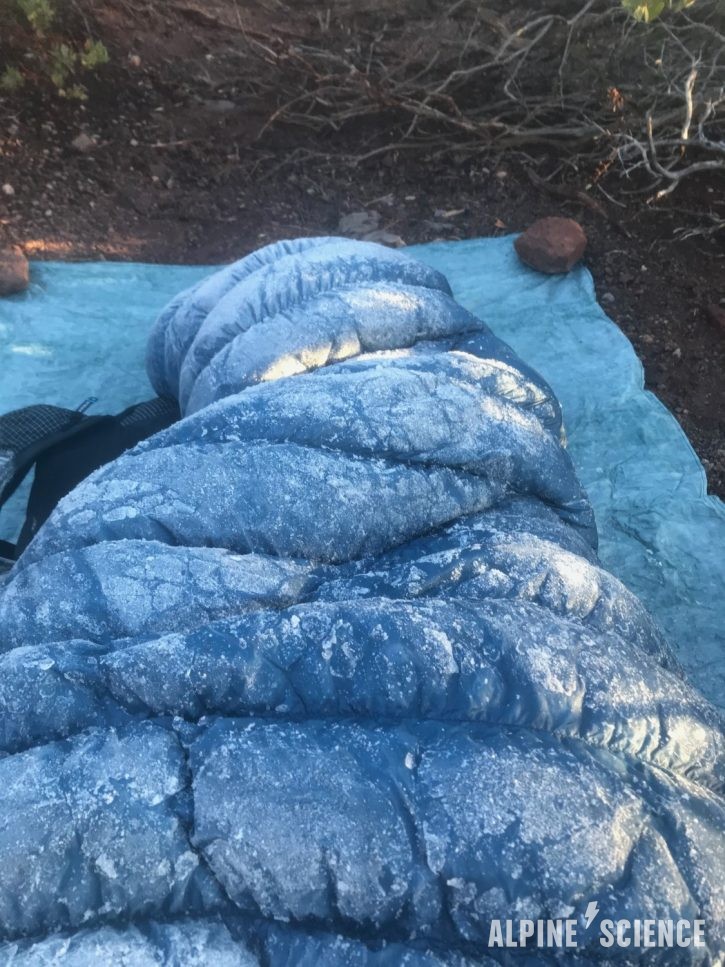
Food
My appetite came and went but was never ravenous the way I am when I eat carbs. On carbs, I live and die by each meal on carbs and if I get behind on refuelling while backpacking, my mood deteriorates quickly and the wheels fall off. Every time. When hunger came, it was in the next room, but not banging on me to eat immediately, it just wasn’t a big deal. This is so nice.
I brought 8 ounces of clarified butter. Never touched it. Was not an option for my appetite. Although I ate both containers of nut butter which were 50% butter and 50% almond butter and loved them, I might move to 1/3 butter / 2/3 almond or peanut butter in the future because it turns out butter just doesn’t work for me on trail.
Cheese and meat were iffy, the hard cheeses I brought are on the dry and salty side, not the sweet side like muenster or soft cheese, so I ate them and enjoyed them to change things up, but I would have struggled if they were my main sources of fat. Same goes for salami, a little bit here and there was fine. Salmon jerky was nice to have for variety but probably wouldn’t bring it in the future.
Cream cheese! Holy shit, I brought some on a lark and it was one of my fav things ever. Have ordered powdered cream cheese to see how I like that on trail.
Trader Joe’s coconut oil packets for butter coffee but it was too cold and the oil just balled up. Will be trying coconut powder in the future.
Macadamia nuts and almonds went well. Ate 3 ounces total per day and that was pretty decent, just something to change things up but again, not wanting to gorge on them like I was expecting.
I did eat raw Trader Joe’s coconut packets a few times to see what would happen. It wasn’t like slamming an espresso or anything but probably a more efficient way of getting bioavailable fuel into my body. My main test was to see if I shit myself or got sick from it … negative on both counts. Some don’t do well with coconut or mct oil even in small amounts like in bulletproof coffee. Fortunately, I’m good to go!
Protein
One concern I have is hitting my protein macro every day, so I brought protein powder and it was unusually satisfying! I normally only go to it in real life if I need to hit my macro at the end of the day. It was very good. In the future I will be pairing it with heavy cream powder, instant coffee and coconut oil powder for a morning breakfast shake!
I left my potassium and sodium electrolyte powder on the counter, but still did ok. Supplementing these two in addition to magnesium is critical for keto athletes and one the main causes for lethargy and headaches on keto. Good to know it’s not the end of the world if I skip it for a day or two.
No Post Trail Gorge in Town
Even when I came to town post trip, I wasn’t really hungry or wanting to go find a restaurant to eat at. Fucking sorcery. Think about that for a second, not wanting to go gorge after a backpacking trip? Welcome to keto. Now go tell everyone about it and annoy the shit out of them more than vegans do. Actually, don’t tell anyone. I’ve learned to not bring up diet in any way shape or form. If something with carbs is offered, simply say no thanks … no explanation, no discussion, nothing. We’re decades away from undoing public sentiment about the role of fats and sugars in health. Accept that now. :)
Keto Shakedown Backpacking Conclusion
Not everyone reacts the same to any given diet or way of eating. I was confident I would do well but needed to see that first hand and was not disappointed. Keto is the future for me, hands down. I’m now inspired to push myself harder backpacking whereas before I feel like I was always just trying to maintain, especially on big mile days. There’s so much hype regarding keto and it’s hard to trust what is true and what is not, but overall, my personal experience has been that just about everything I’ve read so far has proven to be true so far. We’ll have to see how the rest of the journey goes!
The bottom line is that keto is uniquely suited for backpacking, offering increased and more sustainable energy without bonks, lower weight food carries, less gear carried (see thermo potentiation above) and an overall lower appetite on trail, which is awesome! Don’t hesitate if you have any questions!
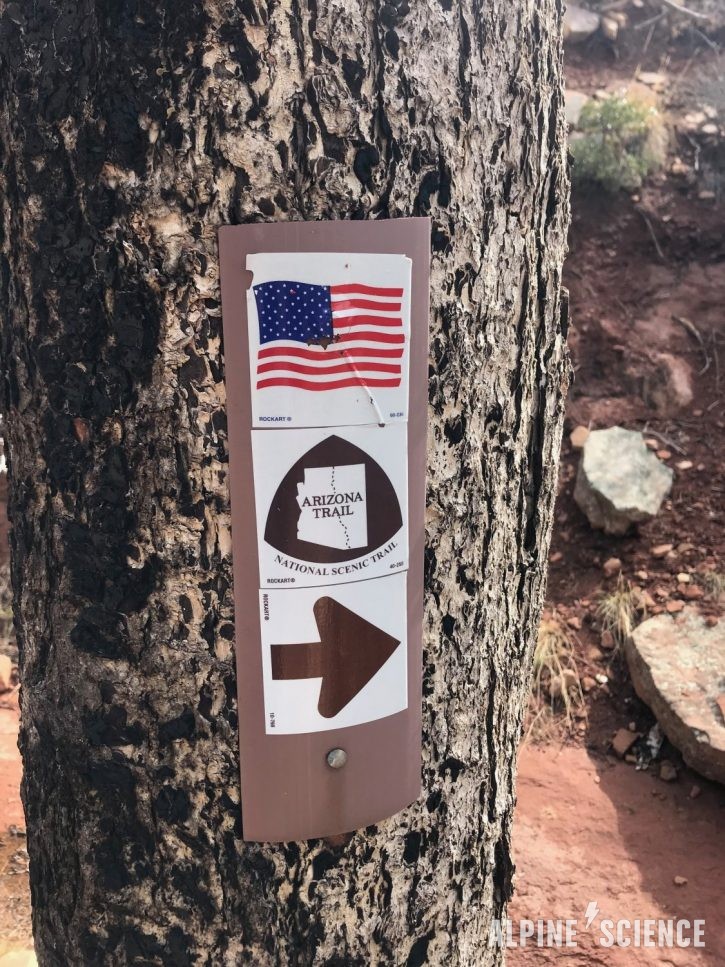
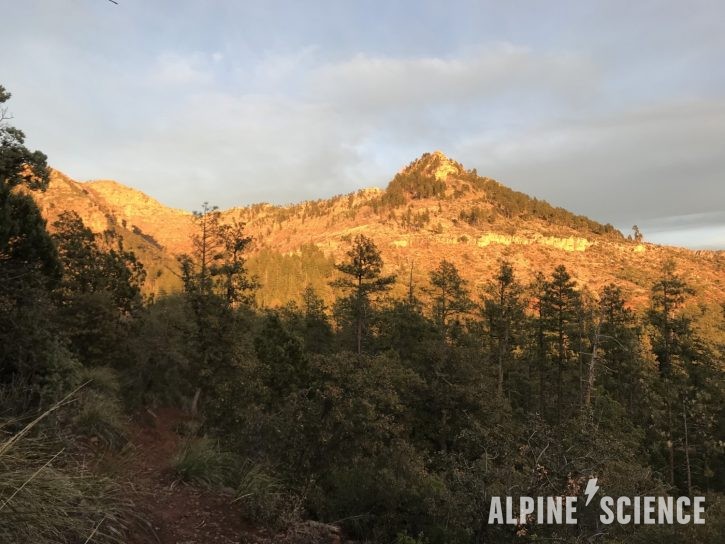
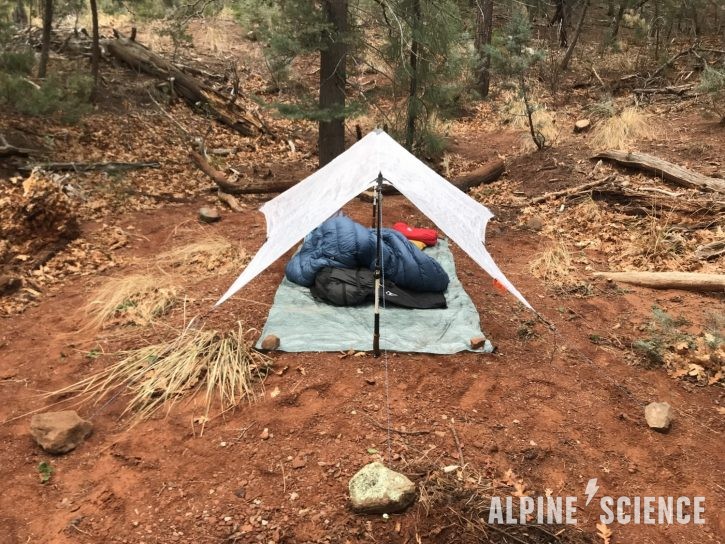
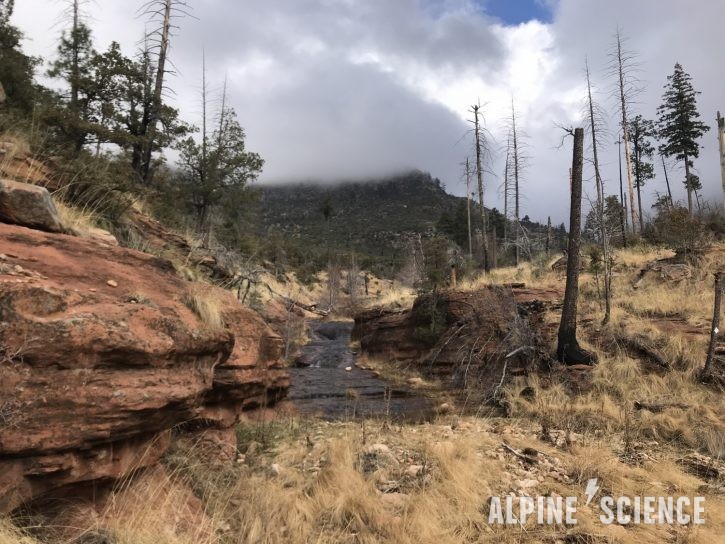
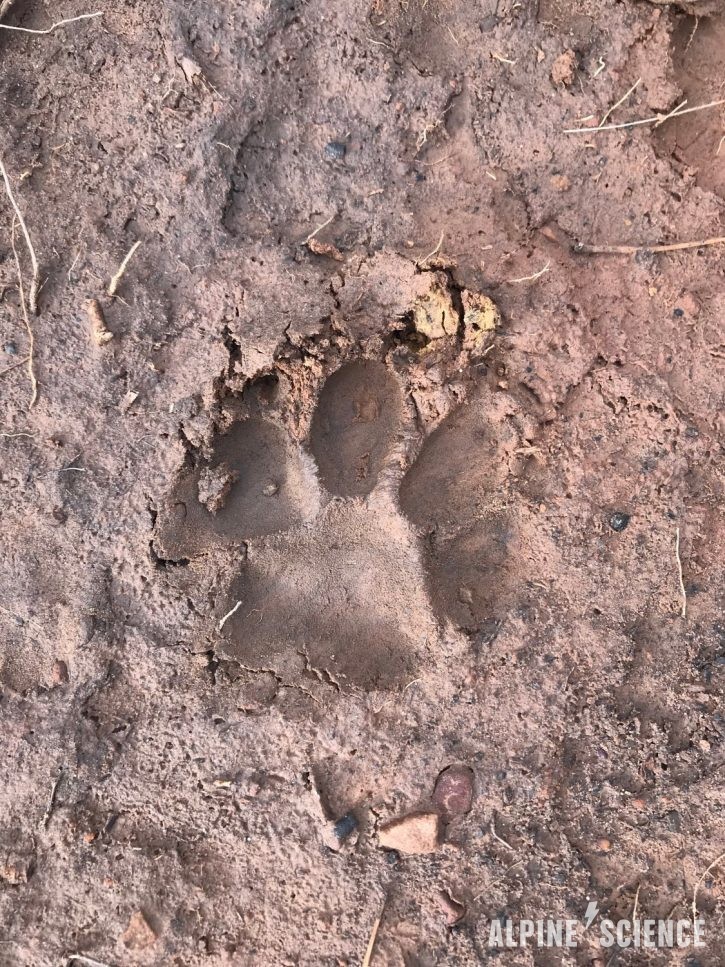
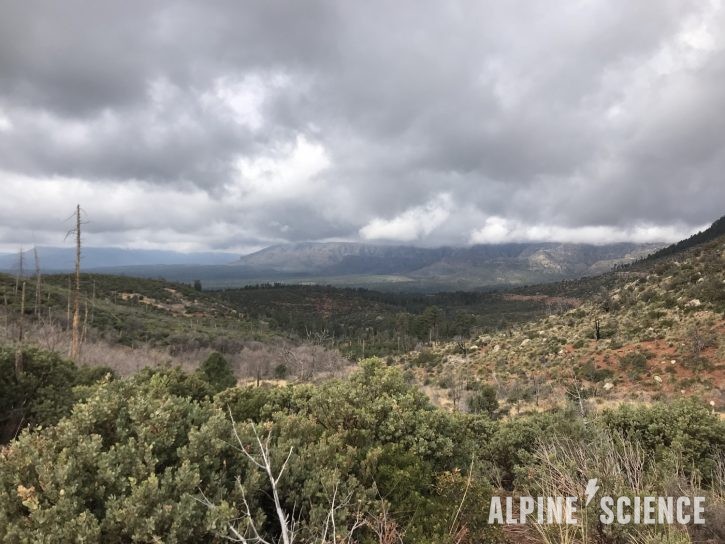
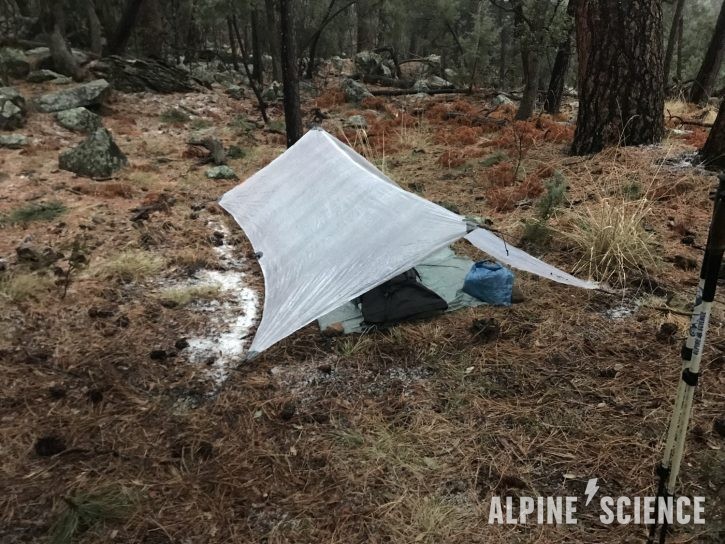
Trace
#Love, backpacking, bass music, burning man, animal protein and dogs. <3


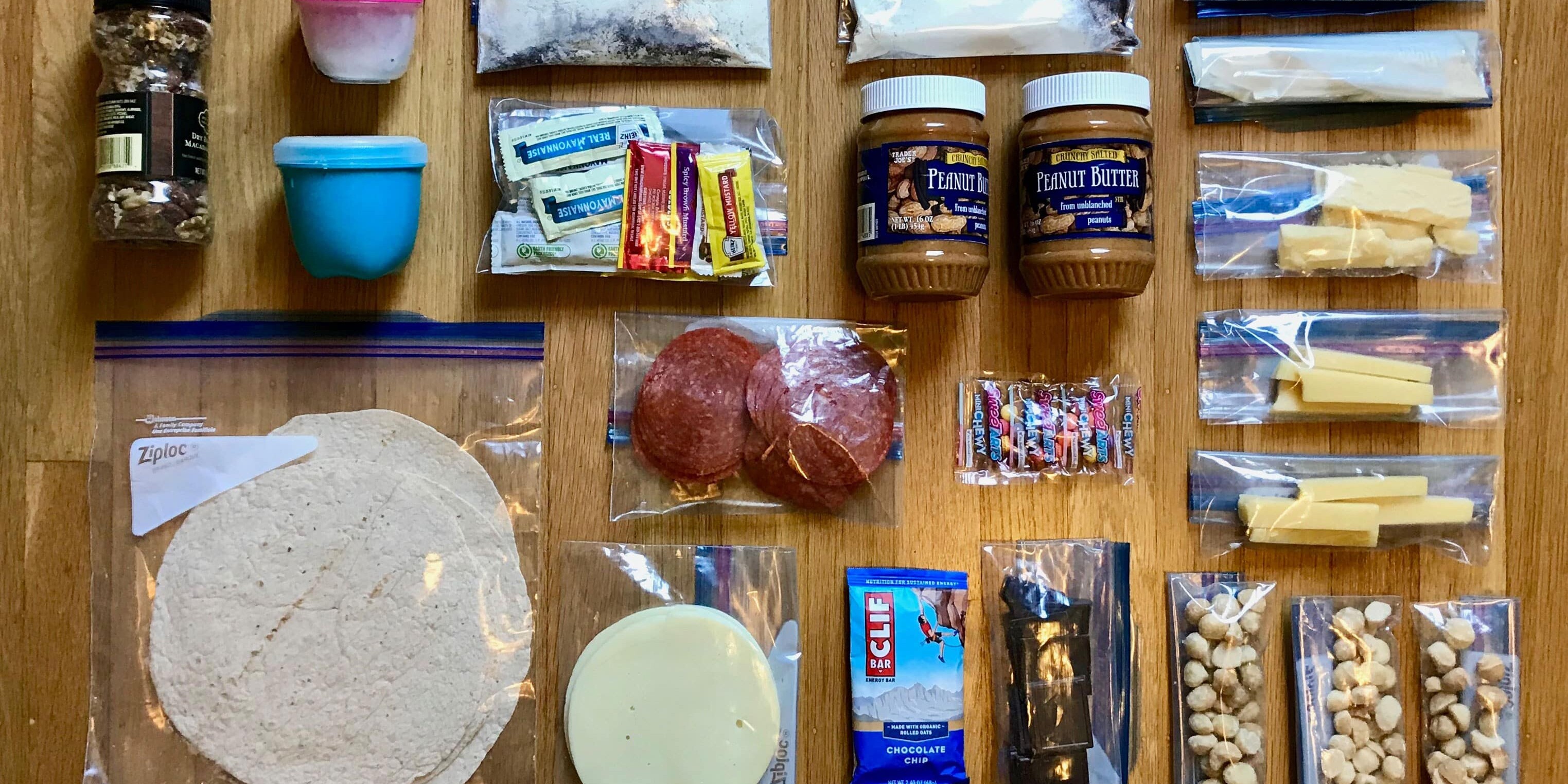
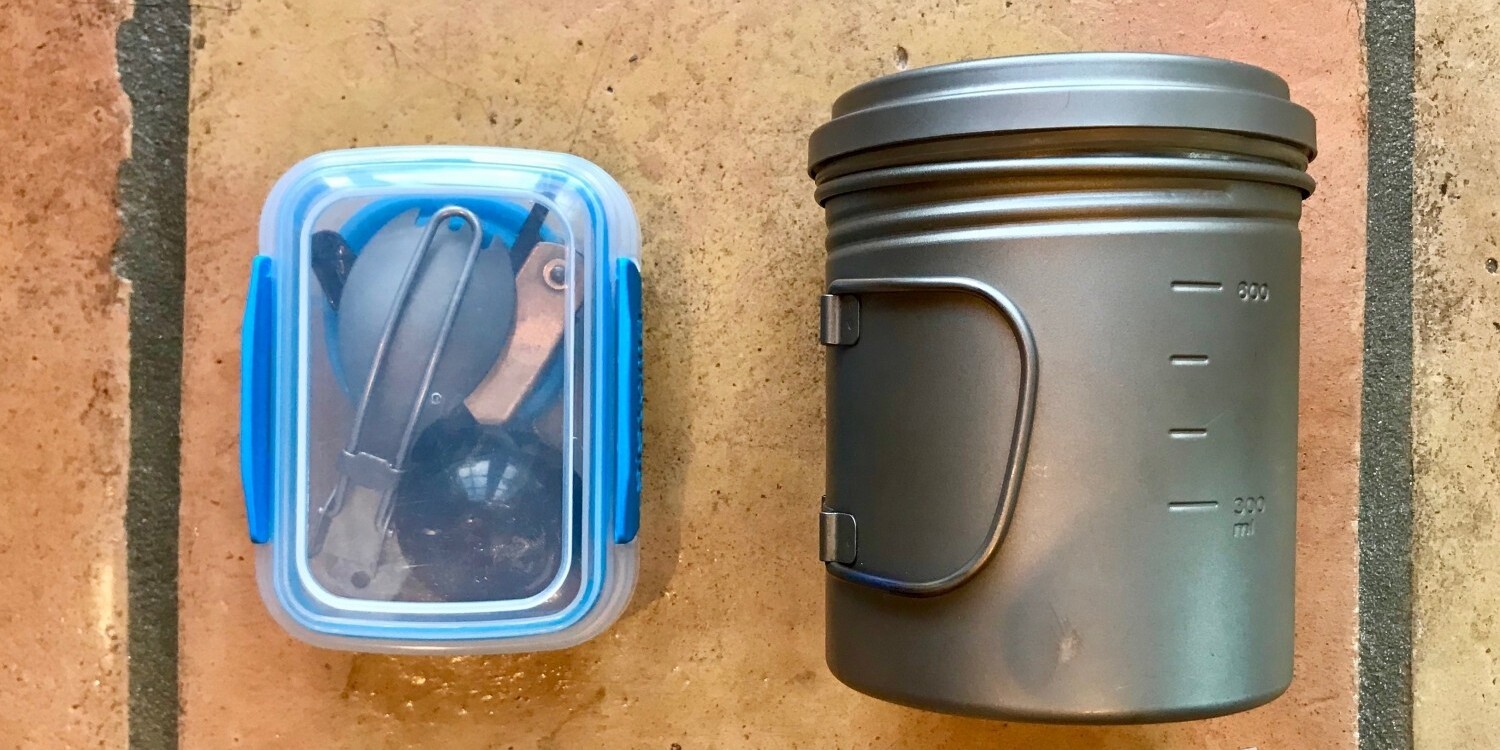
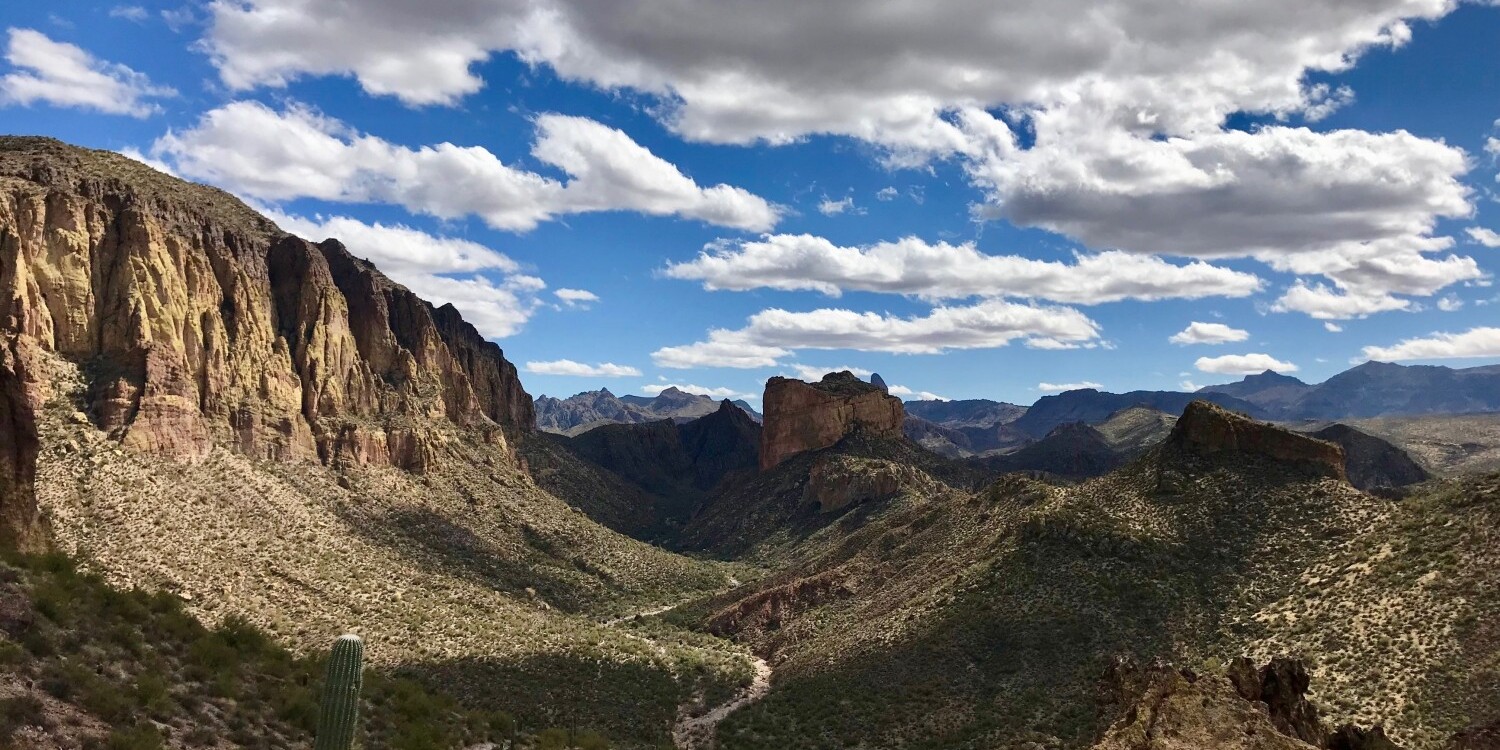
Very cool information, i’ve have to try the diet!
Looks epic Trace! I’m so glad this is working out for you. Its exactly why I wrote my book! You are becoming the poster child for the ultra-light ketogenic backpacking community!
Thanks B! I Loved your book by the way! Here’s the link for anyone else that is interested, it’s a great read and the recipes are next level: http://amzn.to/2FpwYEd
This post is extremely helpful as I wondered about eating ketogenic in the woods. I’m impressed — but it seems a bit crazy — that you didn’t use a tent! ):
I’m lazy and putting up and taking down a tent takes time :)
Hey – your site is awesome and is the first site I’ve found regarding ketobackpacking. I hiked the PCT in 2012 and started planning with keto in 2013. A few missteps here and there but I’ve got it dialed in finally.
Last year I hiked the ~200 mike Collegiate Peaks Loop of the Colorado Trail in ketosis and largely fasted for two separate 4-day / 75 mike sections. I couldn’t believe my energy and just ate a few tablespoons of peanut butter each evening because I couldn’t believe it was working so well.
I regret not weighing in and being more diligent with data tracking – just so I could share how well it really works.
By the way – the sodium / potassium / magnesium IS THE KEY – at least for me. On my Colorado Trail Loop I took boullion cubes (~950mg sodium per cube) and put two cubes + poured in some Morton’s lite (for potassium). Was kind of strange drinking cold chicken soup but I got used to it. I just drank a ton, kept cracking out the miles, and felt great.
Thanks so much and keep posting!!
Thank you so much Steve! Totally agree regarding electrolytes …. it’s something that is easy to gloss over, but it’s important, especially for endurance athletes like backpackers! I’m even now rethinking some of my greatest hits of bonks in years past on a standard diet when I had sufficient fuel / food in my system and suspect they may have been electrolyte related as well. In the Keto Backpacking guide I just posted, there’s a great graphic from KetoGains that lays out the electrolytes needs for athletes. It’s important to measure them out because a lot of people will take an “electrolyte supplement” like Nuun and still only be hitting 2% of their needs because the supplement is WEAK! Bouillon is good stuff and Bone Broth is also worth checking out if you haven’t already. Thanks for saying hi!
Great read. I’m passing this along to all of my keto peeps. None of us are hikers but it’s just interesting to know what our bodies could be capable. Makes me want to try it.
Such great info. This was shared in my keto fb group. My bf and I like to hike 13m+ day hikes with around 3k elevation gain and our food consists of pickles + pickle juice, some nuts and string cheese, water. We are always amazed the amount of energy we have on the way up! Our goal this year is a 5-6 day backpacking trip in Utah in the fall so we are starting to do overnight trips and 2-3 day to figure out our keto food that will work for us. Definitely will be following your journeys.
Great post, Trace. I am new to keto with a planned backing trip in a few months. I saw that your gear does not include a bear canister. Are bears a consideration where you hike? It seems like they’d go crazy over our food.
Juls, as far as food and bears goes, they’re going to smell it whether it’s keto or not, so same precautions and care apple :) I bring a bear canister when required to but usually sleep with my food, which is what most thru hikers do and is the most effective. If in doubt, bring a canister :)
This is great! I started keto 3 months ago and have lost 20 pounds. I feel amazing and it’s given me the energy to start training for hiking and backpacking. I did 2.6 miles today and normally I would be ravenous after that but today I calmly came home, took a shower, put away my gear and then ate! Would never have happened on a carb heavy diet. Excited to use this info next year; I have 12 months of training ahead of me to get to the point I think I will be ready for a 3 day backpacking trip on the AT. This has been a super helpful site as I research how to get to this goal. Thanks!
Thank you! I was the same way, super carb sensitive ….. starving before, during and especially after hikes and the wheels would fall off if I didn’t get food in time. It’s nice to not end up feeling like a hungry toddler if I don’t get food on time :)
This is great info, thank you. I am starting again on Keto and also meeting a Keto friend on the PCT. We were brainstorming; now I can surprise her with some new items and replenish her supply
Thanks for the info! Keto backpacking info is extremely hard to find. Some great ideas!